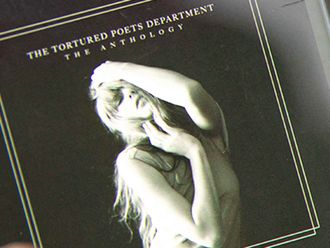Hundreds of tickets to see Adele in concert next summer have appeared on resale websites for up to £9,000 (Dh42,069), despite a concerted effort by the singer to battle touts. Tickets for the upcoming dates at Wembley Stadium appeared at huge markups as experts warned that plans to clamp down on industrial-scale touting, by outlawing the “bot” software used to harvest tickets, will do little to stop fans being ripped off. Viagogo and StubHub, so-called “secondary ticketing” websites used by touts, are advertising tickets for the singer’s London concerts next June. Some appeared online earlier this week even before they went on advance sale on Adele’s official website. GetMeIn and Seatwave, both owned by Ticketmaster, are understood to have refrained from listing Adele’s tickets amid growing scrutiny of the ticketing world. Adele also worked with Songkick, a company that uses technology to try to ensure tickets end up in the hands of real fans. Industry sources said the arrangement had curbed the number of tickets on Viagogo and StubHub to around 5,000, below what is normal for the most in-demand events. But hundreds were still available at huge markups. The new evidence of the grip touts have on popular events emerged as music industry figures raised concerns that proposals designed to address the problem were inadequate. MPs are considering criminalising the use of bots — readily available software that can harvest hundreds of tickets for touts in a matter of seconds. But industry figures say cracking down on bots may do little to prevent fans being exploited. Music manager Ian McAndrew of Wildlife Entertainment said he feared that some managers and promoters were passing tickets directly to resale websites, bypassing the official sales altogether.
“I have often been approached by one of the big four resale sites asking to enter into an arrangement where I give them inventory [tickets] in return for participation in the resale profit,” said McAndrew, who has managed acts including Arctic Monkeys. “That is a proposal I have refused on a number of occasions. I can understand how that would be a temptation to some who want to maximise profits for a show.”
Security consultant Reg Walker told a select committee hearing last month that someone linked to singer Michael Buble had sent tickets directly to secondary platforms, although he did not suggest this was for financial gain. “In my opinion, I believe that was done potentially without the artist’s knowledge and it makes me wonder if there are other artists out there that this is happening to, that they are unaware,” he told MPs during a hearing of the department of culture, media and sport select committee. Walker, whose security consultancy Iridium helps identify and block attacks by touts, told the Guardian that outlawing bots was not a “magic bullet”. “I’m concerned that we’ll get one piece of legislation that blocks a certain amount of the problem but fails to tackle other problems, such as artists or managers doing backdoor deals with secondary ticketing platforms.” Walker said he has seen an increase in touts simply outsourcing bot activity overseas in anticipation of their use being banned in the UK. And he warned that touts might simply return to the “old-fashioned ways” of getting tickets, some of which were revealed in a Guardian investigation earlier this year.
Legislation
Alternative methods include employing people to trawl ticket sites manually, or using multiple credit cards to subvert limits on the number of tickets that can be purchased. Walker said any legislation would have to take into account technology not classed as a bot, including specially modified internet browsers designed to harvest tickets. “With the speed at which things evolve, legislation has difficulty keeping pace. A lot of this will hinge on the definition of software they’re intending to block,” he said. While British MPs have so far been wary of over-regulating the ticket market, other countries have been less shy. Secondary ticketing is illegal in Belgium and strictly limited in France, while Italy recently moved to outlaw it after Live Nation, which owns Ticketmaster, admitted passing tickets directly to Viagogo. While touts have a free rein to do business in the UK, they are facing a full-blown investigation into their tax affairs by HMRC, amid allegations that their company accounts do not match up with their sales via ticket resale sites. Touts have also repeatedly been shown to be breaking laws designed to protect consumers from being ripped off. Anyone masquerading as a consumer to buy tickets they intend to resell for profit is in breach of the Consumer Protection from Unfair Trading regulations. And touts who sell via secondary platforms without listing details of their business, or the row and seat number of the ticket, are in breach of the Consumer Rights Act 2015. National Trading Standards is meant to enforce these laws but has yet to launch a full-blown investigation. The Competition and Markets Authority is also looking into ticketing and is due to release a report later this month.













